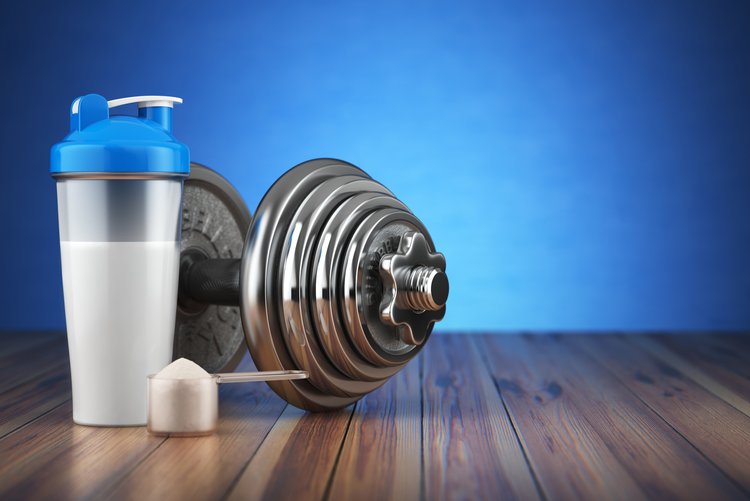Fitness assistants: sports supplements for real results
Many manufacturers of sports supplements state that only their product is special and the "purest", not at all a "cat in a bag", like all the available products from the competitors. Or a new advertisement that claims you'll get fit without any effort on your part, this is the supplement that can make magical changes to your appearance and health.
But there’s always a catch, isn’t there?
From my twenty-five year of amateur fitness experience, many similar temptations came and went. Supplements appeared, were bought and taken in huge quantities, but afterward, in the absence of efficiency, were quickly forgotten.
Our mission today is to figure out what's worth spending your money on. Which sports supplements can really help to improve training in the gym, without burning a hole in your budget, and most importantly without harming your health.
Before proceeding to list the specific products, I must recall that sports supplements are not capable of performing miracles. At the heart of the nutrition pyramid lies the total calorie count that you choose for your goals, be it maintaining body weight, weight loss or gain.
The next most important parameter is the ratio of proteins, fats, and carbohydrates, as well as a diet and a sufficient intake of water, fiber, vitamins, and minerals. And only if all the above conditions for building your diet are met, sports nutrition can be the cherry on the cake.
So, you need to decide which of your fitness goals need sports nutrition support, and I'll tell you what to choose.
Goal: gaining muscle mass
The best supplement: whey protein
Whey is critical for the repair of damaged muscle fibers and for the construction of new ones. The supplement consists of amino acids with branched side chains (BCAA) are the best ingredient for triggering protein synthesis. Out of these amino acids, leucine is the most powerful.
It is known that muscle protein is synthesized in our body every 4-4.5 hours, so regular intake of additional protein with each meal is very important.
As for out-of-date doctors recommendations regarding a protein dosage of 0.8-1 g per kg of your weight, they are not relevant for those dealing with weights.
Current recommendations concluded by scientists start from 2 g of protein during the day from different sources per one kilogram of body weight. If you can’t cope with the production of this dosage from conventional products, then whey powder protein will come to your aid.
Instructions: Whey protein should be taken after training and between basic meals. Protein, like carbohydrates, has an energy component of 4 calories per gram. Take this into account when tracking your daily calorie intake, to adjust the ratio of macronutrients and stay within the prescribed energy supply figures.
Another tip: The best whey protein works in tandem with casein, so you can easily mix the two of these types of protein in your blender or shaker, fast and slow proteins have a synergy effect.
An important notice!: Before significantly increasing the amount of protein in your diet, it would be wise to check your kidneys and lactose tolerability
Goal: cardio
The best supplement: amino acids BCAA
Regardless of whether you just want to "be in shape" or are concentrating on losing weight, BCAA amino acids are your best friends.
These amino acids, along with the basic ones, are very important in recovery after training. This additive is useful when ordinary food is either inaccessible or undesirable. Whether it's a trip-flight or training in the morning on an empty stomach.
BCAA will help give your muscles the energy they need without the accompanying calories from regular food.
Instructions: Take at least 5 grams of BCAA per reception, depending on the intensity of your workout. If possible, choose those amino acids where leucine concentration is highest. You can take this supplement before the gym, during the training in a diluted form, and after the workout by enriching your post-training protein with them.
Additional info: In long breaks between meals, BCAA can also be useful because of its anti-catabolic properties.
An important notice!: When choosing BCAA, carefully see what ingredients they consist of. The manufacturer can add anything from caffeine to potassium and sodium for various purposes in order to maintain the water-salt balance during training. Request the seller to explain the task of additional substances in each specific sports supplement which has the inscription BCAA. As with the increase in protein intake, before taking the supplement, check the state of your kidneys.
Goal: burning fat
The best supplement: caffeine
Despite the fact that dozens of fat burners can be found on the shelves of sports nutrition shops, the only legitimate, vegetable-based and truly effective fat burner with proven effectiveness is caffeine.
Getting into the body, it stimulates the adrenal glands by signaling them to produce energy and concentration. The CNS goes into a combat state, which helps to train more intensively, concentrate and achieve results in any kind of physical activity. Caffeine is perfect for fighting fatigue and allows you to do more in training.
Instructions: take caffeine 40-20 minutes before training, depending on your individual sensitivity. A safe dose is 3-6 mg per kg of body weight. That is, for a beginner athlete weighing 70 kg, a safe daily dosage is 210-420 mg.
Additional info: Caffeine is wonderfully friendly with carbohydrates, and they can and should be taken together. Thus, the conversion of carbohydrates into intramuscular glycogen significantly is improved. So do not forget to eat before training, with caffeine and carbohydrates in the blood, it will pass with a bang!
An important notice!: Overdosing on caffeine has unpleasant effects: a feeling of anxiety, heart palpitations, increased pressure and sleep disorders. So, be moderate and do not take caffeine any later than six hours before your bedtime otherwise you might have a restless night!
To be continued...





